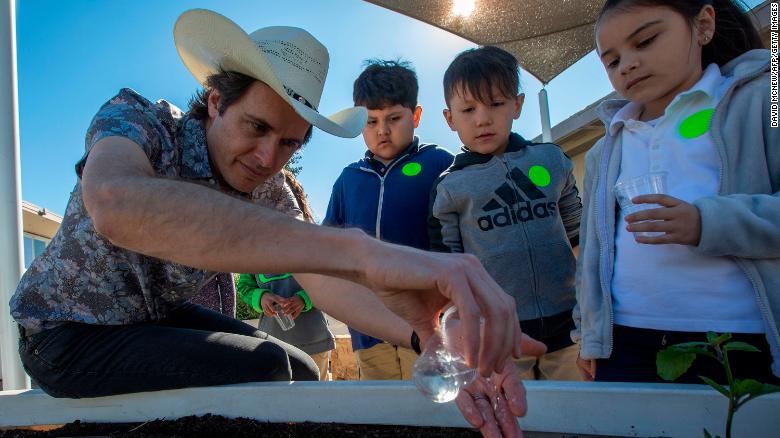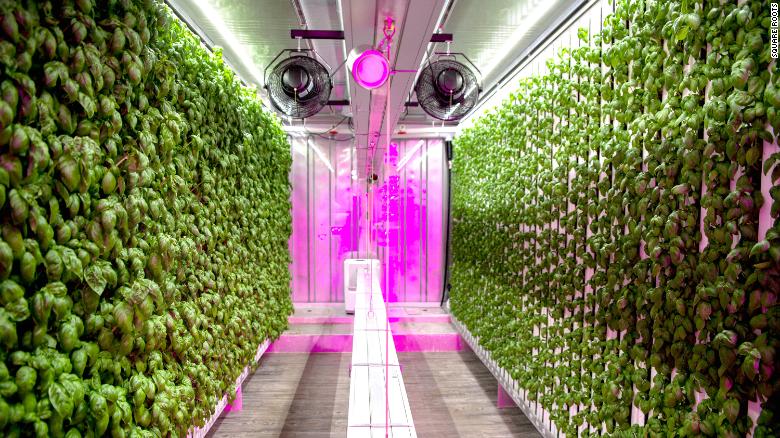Elon Musk's brother wants to transform farming - Plant-based nourishments are extremely popular at the present time, and vertical ranches are profiting by the pattern.
Vertical cultivating is an indoor cultivating strategy in which yields are developed in stacked layers, frequently without soil. The training is getting progressively well known and significant as urban populaces develop drastically and accessible farmland diminishes.
While vertical cultivating is certainly not another idea, these eco-accommodating indoor homesteads are currently quickly growing.
Elon Musk's more youthful sibling, Kimbal Musk, who was named "Worldwide Social Entrepreneur" of the year by the World Economic Forum in 2017, began Square Roots, an indoor urban cultivating organization situated in Brooklyn, in 2016. Square Roots' crucial to bring new, nearby nourishment to urban communities around the globe by enabling more youthful ages to take an interest in urban cultivating.
"At the point when I was a child, the main way I could get my family to plunk down and associate was by preparing the dinner," Musk, prime supporter and official administrator of Square Roots, revealed to CNN Business in an email.

"Engaging with the web, particularly in the late 90's, was energizing and I wouldn't transform anything about those encounters, however my enthusiasm has consistently been nourishment," Musk said. "The minute Elon and I sold Zip2, our first web organization, I realized I needed to seek after nourishment and become a prepared gourmet specialist." He moved to New York and selected at the International Culinary Center.
Musk said the organization intends to open a Square Roots "Super Farm" — with 25 atmosphere controlled transporting compartments, cold stockpiling, biosecurity framework and everything else expected to run a vertical homestead at scale — in under a quarter of a year.
Since its initiation, Square Roots has developed in excess of 120 assortments of yields, including greens, vegetables and strawberries.
The organization isn't the first of its sort. New businesses like Silicon Valley's Plenty, which was established in 2013 and is upheld by Jeff Bezos, are likewise starting to rule the space.
"Naturalists, urban ranchers, engineers, agronomists, and general wellbeing specialists, among others, have been joining this smaller than normal transformation as they accomplice to work out an approach to rescue a nourishment rare, ultra-urbanized future," Kheir Al-Kodmany, a teacher of reasonable urban plan at the University of Illinois at Chicago, said in a report.
It includes different strategies, for example, hydroponics, which utilizes mineral supplement arrangements in a water dissolvable; aquaponics, which utilizes oceanic animals -, for example, fish and snails - and develops plants in water; and aeroponics, which develops plants noticeable all around.
With respect to work creation, fast environmental change will make a large number of customary ranchers bankrupt, yet vertical ranchers won't be influenced, as indicated by microbiologist Dickson Despommier, an emeritus teacher of open and natural wellbeing at Columbia University.
Albeit vertical cultivating was first presented in the mid 1900s, it was as of late promoted by Despommier. Over 20 years prior, he started training a class at Columbia called Medical Ecology.
Despommier went through 10 years developing yields inside with his understudies. "Ten years back, there were no vertical homesteads," he stated, taking note of that LED develop lights have immeasurably improved cultivating effectiveness in the course of the most recent five years, making indoor becoming less expensive and increasingly solid.

"Individuals need nearby nourishment since they've lost trust in the mechanical nourishment framework that ships in unhealthy, low supplement nourishment from a huge number of miles away with little straightforwardness regarding who developed the nourishment and how," said Peggs, the Square Roots CEO.
Simultaneously, the total populace is developing and urbanizing quickly. Peggs said environmental change is compromising existing supplies of nourishment, constraining the business to make sense of better approaches to develop nourishment rapidly.
Peggs is hopeful about fund-raising for vertical cultivating. "A great deal of savvy cash and capital is entering the space," he said. "The nature of nourishment that would now be able to be created in these indoor frameworks is in any event comparable to the best natural field developed nourishment you can purchase."
Despommier said that urban communities will in the end have the option to develop "everything they can eat" from indoor ranches situated inside city limits. "On the off chance that an open air ranch falls flat, the rancher needs to hold up until one year from now to begin once more, he said. "Indoor homesteads flop as well, yet the indoor rancher can begin again inside weeks."



















No comments: